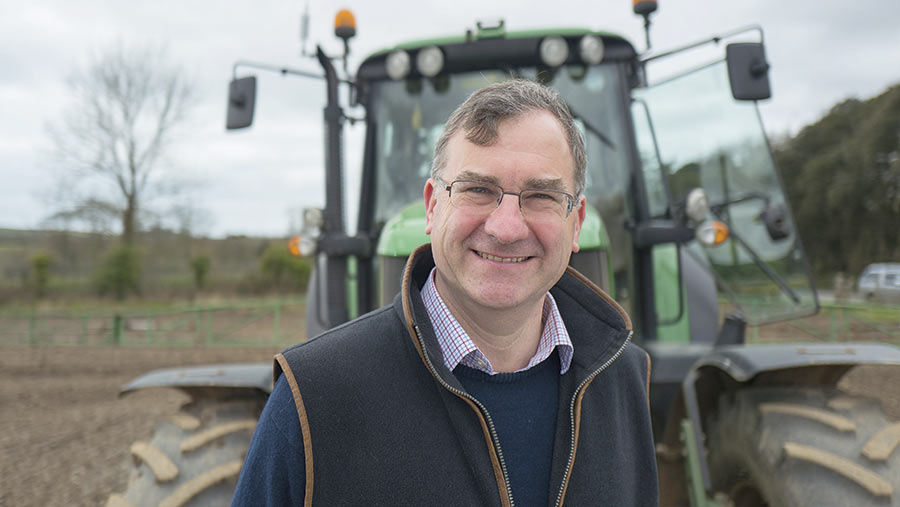Farmer Focus: Food prices will undermine green Brexit
 Jeremy Oatey © Jim Wileman
Jeremy Oatey © Jim Wileman As the weather keeps preventing me from doing any real farming, I have been reading the paper recently issued by Michael Gove entitled Health and Harmony: the future for food, farming and the environment in a green Brexit.
Whether you agree with the CAP or not, it has done what it originally set out to do which was to keep people on the land and to keep food prices at an acceptable level, whatever that is.
The document seems to lay all the deemed problems; soil health, lack of productivity/innovation, environmental damage and compromised public health at the door of the EU.
It is aspirational in its ideas, and there is nothing wrong in that, but will it be achievable?
See also: What Defra’s post-Brexit plan means for farmers
I am all in favour of the highest standards, who wouldn’t be when asked? That’s fine if it is not undermined by cheap imports from countries where standards, although perfectly acceptable to the majority, are lower.
Backing British
We need to bear in mind, that to most consumers, price is the key factor in determining their purchasing decisions. If we end up with two-tier pricing, British and other, I’m not convinced the British producer will see much benefit.
I recently visited a major distributor of food products to high street food service customers. I asked how important British origin to their customers was.
The response surprised me. My guide told me it wasn’t, but a means of assurance that it had been produced in a safe way is important.
Soil health is going to be another key area. I would argue most farmers realise soil is the most important asset. I would like to see something, such as tax breaks for landowners, which results in land being let for longer periods to help this.
We do need to see this from both sides though, in order that landowners are encouraged to embrace this concept otherwise a plethora of sham agreements will be created which don’t benefit the real farmer.
There is much to consider in this document. Meanwhile, I hope it dries up soon, my arable staff are fed up helping with lambing.
Jeremy Oatey manages 1,200ha of arable land near Plymouth in Cornwall and is 2013 Farmers Weekly Arable Farmer of the Year. Cropping includes wheat, barley, OSR, oats, beans, potatoes, onions, swedes and daffodils.

